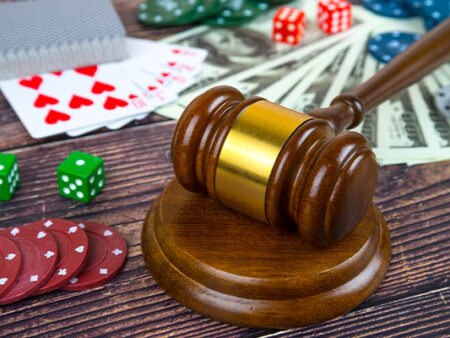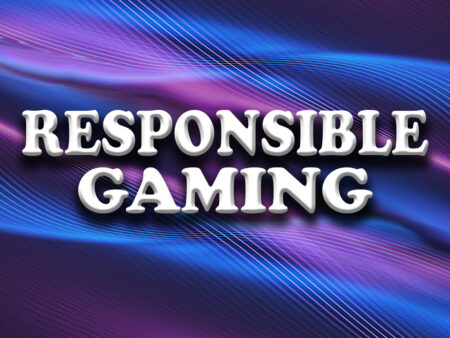
Gambling can be a thrilling pastime, offering a unique blend of excitement, strategy, and the potential for reward. However, without the right mindset and control measures, what starts as a casual experience can escalate into an issue with serious consequences. As you navigate the world of gambling, understanding the concept of Responsible Gambling (RG) is crucial. It’s not just about fun; it’s about playing smart and staying in control.
Recognizing Symptoms of Gambling Addiction
To maintain a healthy relationship with gambling, it’s vital to be aware of the symptoms that may indicate a developing addiction. Common signs include:
Constantly thinking about gambling: If gambling monopolizes your thoughts—even when you’re not playing—you might want to reassess your relationship with the activity.
Chasing losses: Trying to recover lost money by gambling more is a red flag. It often leads to increased losses and riskier bets.
Gambling beyond your means: When gambling dips into funds needed for essentials, it’s time to reevaluate.
Strain on personal relationships: If gambling is causing issues with friends and family or at work, this is a clear sign of a problem.
Understanding and acknowledging these symptoms can lead you to take proactive steps toward Responsible Gambling.
Understanding the Need for Self-Exclusion
Self-exclusion is a formal process whereby you request to be barred from gambling activities. It’s a commitment to step back and break the cycle of addiction. Many gambling platforms offer self-exclusion tools, allowing you to set limits on your activities—either by restricting how much time or money you spend or by stopping altogether. Consider it a personal safety net that supports your decision to gamble responsibly.
The Path To Gambling Moderation
Moderation is key. Here are a few strategies to help you stay within limits:
Set clear boundaries for time and money. Decide in advance how much you’re willing to spend and stick to it. Use the tools available on gambling sites to set these limits.
Gamble with a clear mind. Never gamble under the influence of alcohol or emotions.
Understand the games you play. Know the odds, the rules, and when to quit. Knowledge can prevent impulsive decisions.
Balance gambling with other activities. Ensure it doesn’t become your only source of enjoyment.
Seek support if needed. Don’t hesitate to reach out to organizations like QuitGamble.com for guidance and support.
Gambling, when done responsibly, can be an enjoyable activity. By following these strategies and maintaining control, you can ensure that your gambling experiences stay positive and fun. Remember, gambling should be entertaining and not a way to make money. The priority is always to protect your well-being and finances. So, gamble smart, stay informed, and enjoy the game responsibly.
Embarking on Self-Exclusion
Gambling should be an activity you control, not one that controls you. Whether you are just being proactive about your habits or you’ve noticed a concerning trend in your gambling behavior, self-exclusion could be a powerful step towards regaining your balance and ensuring your entertainment doesn’t turn into an issue. Let’s look at how you can identify when it’s time to consider self-exclusion and what steps you need to take to initiate this process.
Identifying the Moment for Self-Exclusion
Recognize Patterns: If you find that you’re spending more time or money than intended on gambling, it’s crucial to acknowledge this pattern. It’s a strong signal that it might be time to take a break.
Assess Feelings Post-Gambling: Take a moment to reflect on how you feel after gambling. If you’re constantly feeling regret, anxiety, or disappointment, these emotional responses are telling. Self-exclusion can be a path to emotional recovery.
Consult Loved Ones: Sometimes, it’s the people around us who notice changes in our behavior before we do. If friends or family express concern, consider their perspective seriously. This could be the nudge you need to opt for self-exclusion.
Be Mindful of Your Well-being: Your mental and physical health should always take precedence. If gambling is affecting your well-being, self-exclusion is a positive step to prevent further impact.
The Initial Steps to Take
Here is what you should do:
Contact the Gambling Operator: Reach out to the gambling service provider and inquire about their self-exclusion program. Operators are obligated to guide you through the process.
Decide on the Time-frame: Self-exclusion can typically range from six months to a few years. Pick a duration that feels right for your circumstances, giving yourself enough time to reset your habits.
Fill Out Necessary Forms: Complete any forms or procedures required by the gambling company. They’re designed to ensure your self-exclusion is respected and effective.
Stay Informed: Educate yourself about responsible gambling practices and where to find support. Gambling operators must provide this information, and it’s a great resource to help you along your journey.
Seek Support: Consider talking to professionals or joining a support group. They can offer valuable advice and encouragement as you navigate this self-exclusion period.
Protect Your Progress: Remove gambling apps and unsubscribe from newsletters to avoid temptations. Modify your environment to support your decision.
Remember, taking steps for self-exclusion is a proactive and courageous choice to ensure your gambling habits remain within a safe and enjoyable limit. With the right measures and support, you can confidently stride towards a balanced relationship with gambling.
Edward Robinson believes gambling can be enjoyable but urges caution. His insights focus on the psychology of betting, healthy habits, and recognising when it’s time to seek help.
More about Edward Robinson
Age: 48
Experience: 20+ years in responsible gambling advocacy and research
Background: Former social worker, now heads a respected non-profit organisation
Hobbies: Bird-watching, volunteer work, and a keen interest in psychology
Residence: Cambridge
Marital Status: Divorced, shares custody of his teenage son


